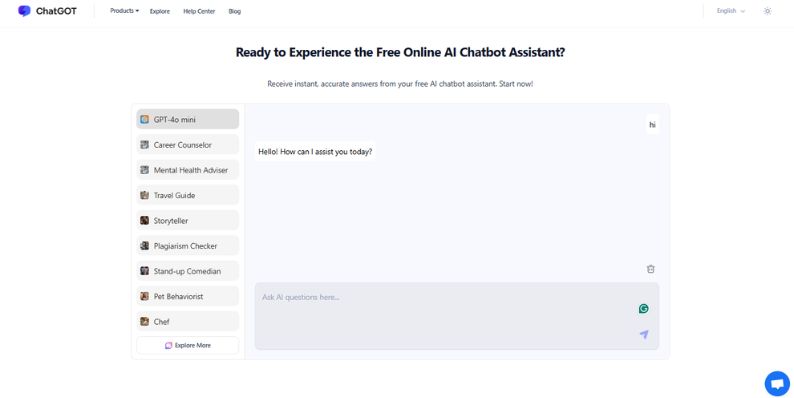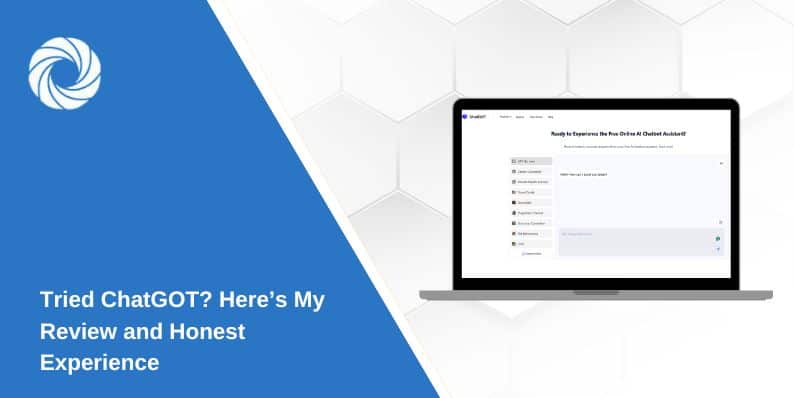I’ve tried a lot of AI chatbots—ChatGPT, Gemini, Poe—but most of them ask for sign-ups, emails, or apps before you can even type a word. That’s why ChatGOT caught my attention. It promised instant, free AI help without logging in or sharing anything. So I gave it a try, and here’s my honest experience.
What Is ChatGOT and How Does It Work?

It offers different AI personalities you can choose from—like a travel guide, chef, career coach, or a GPT-style general assistant. All of this with zero setup.
My First Impressions Using ChatGOT
Right away, I liked the clean interface. There were no popups, no ads, no distractions. It felt like a simple tool that gets straight to the point. I typed my first message without any delay or loading screen. The response was quick and clear.
What stood out was how smooth it felt. There was no login wall stopping me from testing things, and it just worked. That’s rare these days.
Exploring ChatGOT’s Personas: What I Tested
ChatGOT offers a bunch of preset AI roles, and I tried several to see how well they handled different topics. I started with the default assistant (GPT-4o mini) and asked a few simple questions—it answered like you’d expect from a general-purpose chatbot.
Then I switched to the mental health adviser. It replied calmly, with supportive tone, like a light conversation with a coach. I also tried the chef persona—I asked for a 15-minute dinner recipe using eggs, rice, and vegetables. The response was clear and practical.
I had fun with the stand-up comedian mode. It gave light jokes and silly responses—definitely not professional-level humor, but it was a nice extra.
What I Liked About ChatGOT
The biggest win for me is no sign-up. I didn’t need to give my email, verify anything, or go through a setup. It was click-and-chat.
It’s also fast. There was no lag, and every message came within a second or two. On mobile, it worked just as smoothly. The persona system is simple but useful. You can test different tones and roles without logging out or refreshing.
It feels safe, too. Since I didn’t enter personal details, I felt comfortable asking questions without worrying about data tracking.
What I Didn’t Like (Limitations)
That said, ChatGOT does have some limits. There’s no chat history, so once you refresh the page, your conversation is gone. You also can’t upload files or get multi-turn memory like you can with ChatGPT Pro.
The answers are fine for casual tasks, but if you’re doing deep research, writing code, or working on long-form content, it might not be enough. It’s a lightweight tool. That’s not a bad thing, but it’s something to know.
Comparing ChatGOT to ChatGPT and Poe
So here’s the trade-off: ChatGOT is simple, instant, and private. ChatGPT and Poe are more advanced, but require accounts, emails, and some setup time.
Final Thoughts: Is ChatGOT Worth Trying?
For me, ChatGOT is a great option when I want quick answers with no strings attached. If I’m on my phone and want to ask a cooking question, write a short story, or get casual advice, this is perfect. I don’t use it for serious projects, but I use it often when I just want something fast and easy.
If you're tired of logins and just want a simple AI assistant that works out of the box, ChatGOT is worth a try.
Have you tried ChatGOT too? Share your experience—I'd like to know what you think of it.
